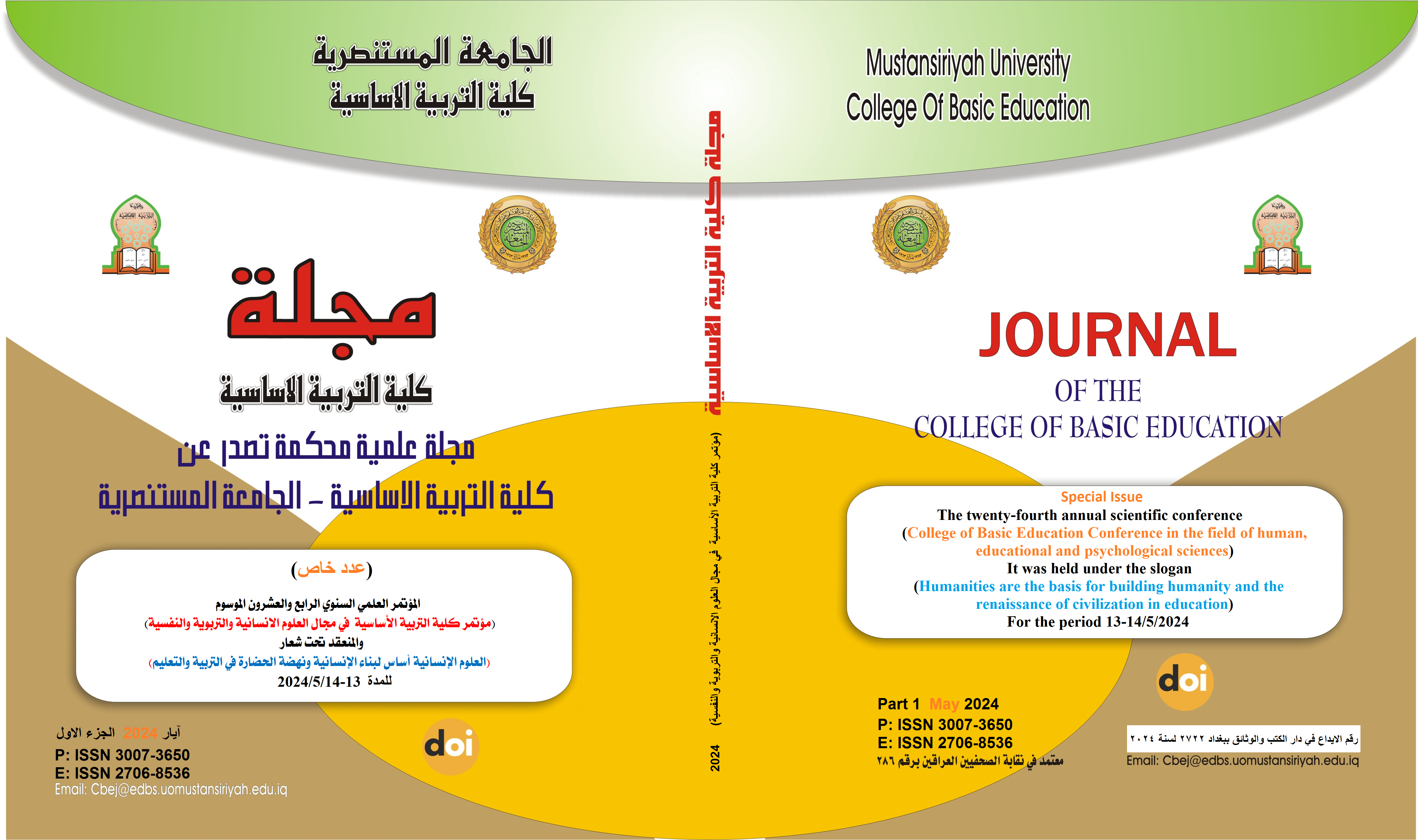Artificial Intelligence And Creative Thinking In Teaching Science
Main Article Content
Abstract
The current era is indeed witnessing the triumph of science and human enlightenment in a way unprecedented in history. With the unparalleled advancements in technology, we now have tools that were never imagined before. Did you know that more than 90% of scientists throughout human history are alive today and living among us? And did you know that humanity now possesses a memory stronger than its personal memory by millions, if not billions, of times – the memory of computers? The upcoming generation of computers, known as nano or quantum computers, will make a single computer of this new type have a memory that surpasses the memory of all currently existing computers in the world.
Therefore, progress and development in science continue rapidly in all fields. Hence, we are now in dire need of harnessing modern technology in education. The research aims to understand the concepts of artificial intelligence and creative thinking in teaching science. The study has addressed these two main axes and clarified the basic terms in detail within the research text.
The first axis aimed to identify the following: (the nature of artificial intelligence, its definition, the importance of its employment in education in general and sciences in particular, the requirements for its use in teaching, its relationship with natural intelligence, a comparison between them, its connection to creativity, and the relationship between learning theories and creativity and intelligence). As for the second axis, its goal was to understand the following: (the concept of creative thinking, its skills, educational applications specializing in employing its skills in sciences, its stages, its importance for learners, the characteristics of a creative person, and other important topics). Therefore, the research aimed to explore the applications of artificial intelligence specifically in the field of science teaching and study the various benefits and uses that artificial intelligence can offer in other fields, including medical, agricultural, and environmental domains. Based on diverse sources and literature, following an investigative approach to search for and present information systematically, the current research is a theoretical study that did not rely on an applied field study in its conduct.
The research focused on contemplation or meditation as the natural and spontaneous action of human intelligence. Through it, the mind can grasp truth without significant effort or hesitation, as contemplation provides direct perception, occurring in the moment. Moreover, it becomes easier when the object of contemplation is tangible. Thinking is a renewable force for the individual and society to endure in the world of today and tomorrow, against the backdrop of ever-increasing informational advancement. Hence, there arises a need to emphasize the teaching of thinking skills and focus on employing them in classrooms across various disciplines and educational stages. Therefore, this research delves into artificial intelligence, its application foundations in the educational process, comparing it with natural intelligence, its obstacles to application, and how psychological theories have contributed to clarifying the nature of artificial intelligence in detail. Furthermore, it elaborates on the concept of creative thinking, its skills, and educational applications related to teaching its various skills in sciences.
Article Details

This work is licensed under a Creative Commons Attribution-ShareAlike 4.0 International License.
